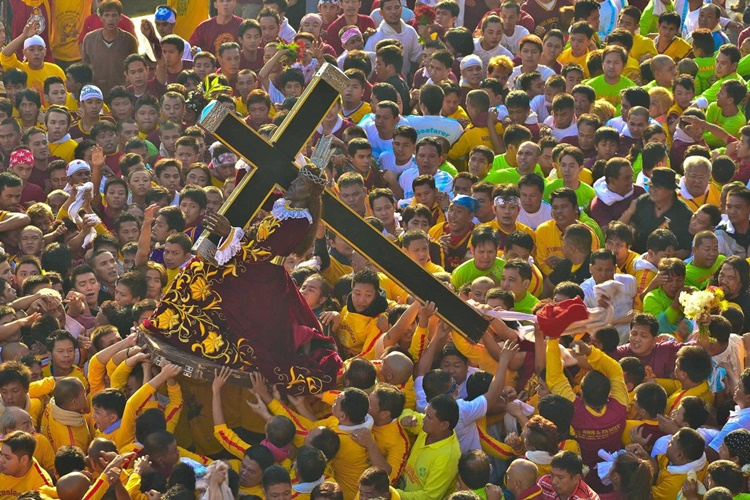TRASLACION – Here are some important facts about the Feast of the Black Nazarene in the Philippines that you should know.
The Traslacion is an annual celebration in the Philippines, honoring the Black Nazarene, a revered image of Jesus Christ. This event attracts millions of devotees, showcasing the deep faith and devotion of the Filipino people.
Every January 9, thousands gather in Manila for the Traslación, a grand procession that commemorates the transfer of the Black Nazarene from Intramuros to Quiapo Church. This event has grown into one of the largest religious gatherings in the country.

History
The Black Nazarene procession dates back to 1787 when the statue was moved to its current location. Over the years, it has evolved into an important part of Filipino culture, drawing people from various places.
Origin
Originally crafted in Mexico, the Black Nazarene arrived in the Philippines in 1606. Its lifelike features and dark wood make it a powerful symbol of hope and miracles for many believers.
The Traslación isn’t just a religious event; it’s a testament to the unwavering faith of Filipinos. Participants dress in maroon and yellow, often going barefoot, as they join the hours-long journey from Quirino Grandstand to Quiapo Church.
List of Events
- Pahalik: Devotees kiss or touch the statue for blessings.
- Wiping Cloths: Many believe that cloths touching the image carry miraculous powers.
- Pulling the Rope: Participants help pull the carriage, or “andas,” that carries the statue.
The event has faced challenges, especially during the COVID-19 pandemic, which led to the suspension of processions from 2021 to 2023. However, the event returned in 2024 with new features, including a glass enclosure for the image.
The religious event is more than a procession; it’s a heartfelt expression of faith and devotion of Filipino people.
What can you say about this? Just leave your reactions down below.

